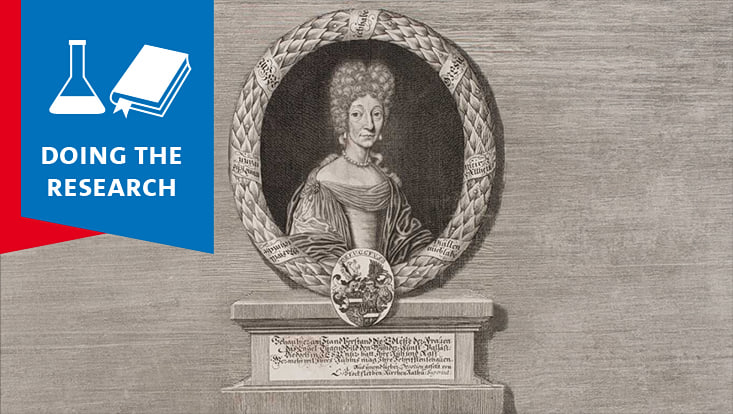Turning Over a New Leaf? Conference on Nature and Historically Troubling Public Memory
27 August 2024, by Newsroom editorial office

Photo: UHH/Stankoweit
Many buildings, monuments, and landmarks attesting to problematic times such as colonialism and fascism have been abandoned and left to nature’s devices. From 19 to 21 September 2024, researchers will attend an international conference to discuss whether this is a form of repression or rather an opportunity for fruitfully confronting the past.
In German and international commemoration practices, it is not uncommon to let nature takes its course, as it were. In Germany, the monuments and buildings under the National Socialists especially were left to rot after World War II. Germans did not merely accept the overgrowth; in part, they also purposefully planted trees to disguise the problematic traces of the past.
Repression or healing?
At the conference Difficult Heritage and “Nature": Greening as Forgetting—Greening as Healing? From 19 to 21 September 2024, international researchers in various fields will discuss how nature has been and is being used in dealing with a troubled past. The conference will focus above all on analyzing the role of nature in dealing with the legacy of National Socialism in post-War Germany.
“For a long time, the strategy of letting difficult monuments become overgrown was seen as repression. Currently, nature—also in the face of the climate crisis—is seen, however, as something positive that can alter and transcend a difficult legacy. However, we cannot forget that nature is itself shaped by politics,” explains Prof. Dr. Margit Kern, professor of art history at the University of Hamburg and conference organizer. The event will take place at the Warburg-Haus (Heilwigstraße 116, 20249 Hamburg) and will bring together different perspectives and develop strategies for the future.
Public conference with opportunities for discussion
“The exchange allows us to contribute to the discussions taking place all over the world,” says Kern. Again and again, people are asking how a monument or building that stands for an historically problematic period can be integrated into public space. This is why the researchers would like to talk to the public and make all talks (in German and English) public. If you are interested, you can sign up on the conference website.
The conference is being held as part of VISUAL_SCEPTICISM, a research project being funded by the European Union until 2026 through an Advanced Grant amounting to €2.4 million. The team here is developing new approaches, based on their own scientific findings, for societies to deal with historically problematic memories.


